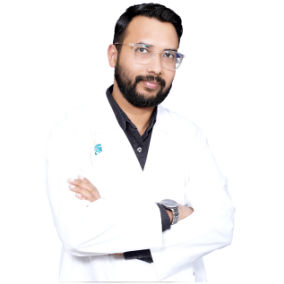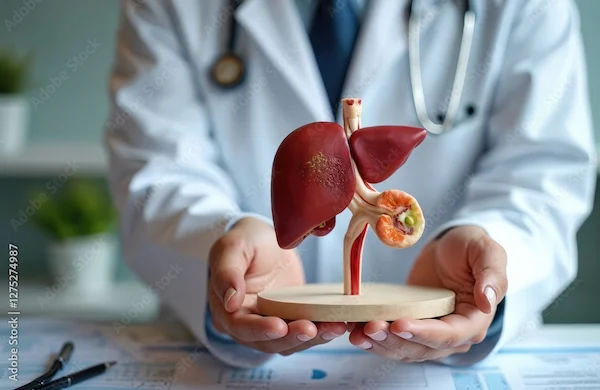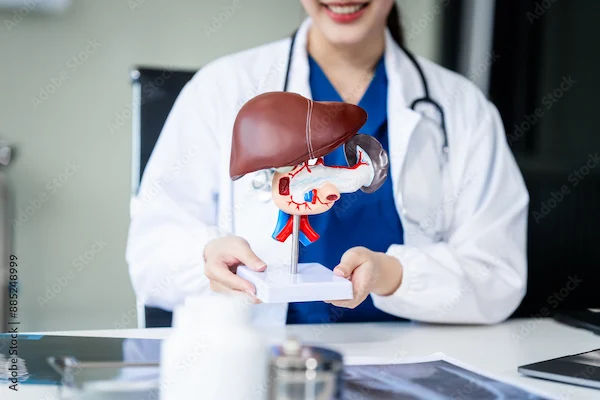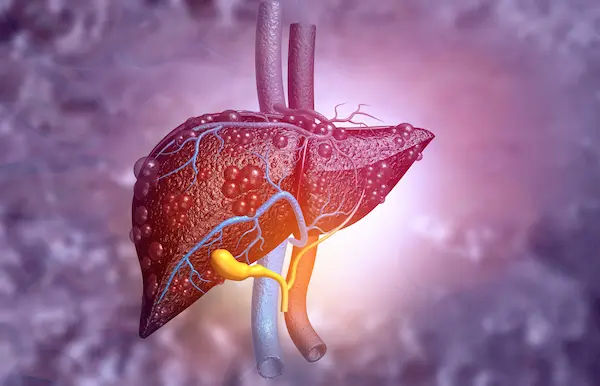Liver Damage Factors: Understanding the Key Causes and How to Protect Your Liver
Learn about the key causes and risks that can harm your liver. Understand how to protect your liver health.

Written by
Last updated on 3rd Jul, 2025
Introduction
The liver is one of the most vital organs in the human body, performing numerous essential functions such as detoxification, digestion, and metabolism. However, various factors can damage the liver over time, leading to chronic conditions, liver failure, or even cancer. Understanding these factors is crucial for maintaining good liver health. In this article, we’ll explore the most common causes of liver damage and provide practical tips for protecting your liver.
Alcohol Consumption: A Leading Cause of Liver Damage
Excessive alcohol consumption is one of the most common and preventable causes of liver damage. The liver processes alcohol, but drinking in large amounts over time can overwhelm its ability to break down toxins. This can lead to conditions such as fatty liver disease, alcoholic hepatitis, and cirrhosis.
How Alcohol Damages the Liver
When alcohol is metabolised, it produces toxic byproducts that can damage liver cells. Drinking alcohol excessively causes fat to accumulate in the liver, leading to fatty liver disease. Over time, this can progress to alcoholic hepatitis, which causes inflammation of the liver. In severe cases, cirrhosis, which is characterised by irreversible scarring, can develop, reducing liver function.
Protecting Your Liver
To reduce the risk of liver damage, it’s crucial to drink in moderation. Keeping alcohol intake within safe limits and avoiding binge drinking can significantly protect the liver.
Viral Hepatitis: A Hidden Risk
Viral infections, particularly Hepatitis B and Hepatitis C, are significant contributors to liver damage. These infections cause inflammation in the liver, which, if left untreated, can result in chronic liver disease, cirrhosis, or liver cancer.
Hepatitis B and Hepatitis C
Hepatitis B is a viral infection that can be spread through blood, sexual contact, or from mother to child during birth. Hepatitis C is mainly spread through blood-to-blood contact, such as sharing needles. While some people can recover from hepatitis infections, others may develop chronic hepatitis, which can lead to severe liver damage over time.
Prevention and Vaccination
Vaccination is available for Hepatitis B and is highly recommended for those at higher risk, such as healthcare workers or people who inject drugs. Hepatitis C does not have a vaccine, but antiviral treatments are available that can cure the infection and prevent further liver damage. Regular screening and early detection can help manage and treat viral hepatitis effectively.
Non-Alcoholic Fatty Liver Disease (NAFLD)
Non-Alcoholic Fatty Liver Disease (NAFLD) is a condition where excess fat accumulates in the liver without the presence of alcohol. It is closely linked to obesity, type 2 diabetes, and metabolic syndrome. NAFLD is becoming increasingly common in the UK, largely due to rising rates of obesity and poor diet.
Stages of NAFLD
NAFLD begins as a simple fatty liver, where fat accumulates in liver cells without causing inflammation. However, if left untreated, it can progress to Non-Alcoholic Steatohepatitis (NASH), a more severe form of the disease, which causes liver inflammation and can lead to fibrosis and cirrhosis.
Managing NAFLD
Maintaining a healthy weight through a balanced diet and regular physical activity is essential in managing NAFLD. Reducing sugar and unhealthy fats in your diet can help lower fat levels in the liver. For individuals with obesity or diabetes, working with a doctor to manage these conditions can significantly reduce the risk of liver damage.
Medication and Drug-Induced Liver Damage
Certain medications, both over-the-counter and prescription, can damage the liver. Drugs such as acetaminophen (paracetamol), statins, and some antibiotics can cause liver toxicity, especially when taken in high doses or over long periods.
How Medications Affect the Liver
Medications can strain the liver’s detoxification process, leading to liver injury. Acetaminophen, for example, can be toxic to the liver when taken in large doses or when combined with alcohol. Herbal supplements and certain prescribed medications can also put stress on the liver.
Precautions and Safe Use
Always follow the recommended dosages for medications and avoid combining medications without medical advice. If you’re concerned about your liver health, speak with your doctor before taking new medications or supplements. Regular blood tests to monitor liver function may also be recommended if you’re on long-term medication.
Toxins and Environmental Exposure
Exposure to certain toxins and chemicals can harm the liver over time. These substances may come from various sources, including the workplace, food, and household products. The liver processes toxins, but prolonged exposure can overwhelm its capacity to detoxify.
Common Toxins That Affect the Liver
Pesticides: Found in contaminated food and water, they can cause liver damage with prolonged exposure.
Heavy Metals: Lead, mercury, and arsenic can accumulate in the liver and impair its function.
Solvents: Chemicals like benzene and toluene, found in paint thinners and cleaning products, can damage the liver.
Industrial Chemicals: PCBs, found in some electrical equipment, can lead to liver toxicity.
Reducing Exposure
Minimise exposure by using protective gear at work, opting for organic produce, and choosing non-toxic household products. Ensuring safe drinking water and proper ventilation when using chemicals can further protect your liver.
Consult Top Hepatologists
Genetic Conditions: Inherited Liver Disorders
Certain genetic conditions can lead to liver damage, even in people who lead a healthy lifestyle. Examples include Wilson’s disease, hemochromatosis, and alpha-1 antitrypsin deficiency.
Understanding Genetic Liver Conditions
Wilson’s disease causes copper to accumulate in the liver, leading to liver damage and neurological problems.
Hemochromatosis results in excessive iron absorption, which can damage the liver and other organs.
Alpha-1 antitrypsin deficiency affects the lungs and liver, leading to liver damage and respiratory issues.
Early Detection and Management
Genetic testing can help identify inherited liver conditions early. If diagnosed with a genetic disorder, treatment options such as chelation therapy (for Wilson’s disease) or phlebotomy (for hemochromatosis) can manage the condition and reduce the risk of liver damage.
Lifestyle Factors and Liver Health
Your lifestyle plays a significant role in maintaining liver health. A diet high in saturated fats, sugar, and salt can contribute to fatty liver disease, while a lack of physical activity increases the risk of obesity-related liver conditions.
Healthy Lifestyle Choices for Liver Protection
Eat a balanced diet: Focus on eating a variety of fruits, vegetables, whole grains, lean proteins, and healthy fats.
Exercise regularly: Aim for at least 30 minutes of physical activity five times a week.
Avoid smoking: Smoking accelerates liver damage and increases the risk of liver cancer.
Conclusion: Protect Your Liver for a Healthier Future
Liver damage is often preventable by adopting healthy habits, avoiding excessive alcohol, maintaining a balanced diet, and staying active. Regular health screenings, especially for those at risk of liver diseases like hepatitis or NAFLD, can help catch any issues early before they become serious. By understanding the factors that contribute to liver damage and taking steps to minimise them, you can protect your liver and improve your overall well-being.
Remember, your liver plays a critical role in your health. Take proactive steps to care for it, and seek medical advice if you experience any symptoms of liver problems.
Consult Top Hepatologists
Consult Top Hepatologists

Dr. Rajeev Shandil
Gastroenterology/gi Medicine Specialist
15 Years • MBBS, DNB (Internal Medicine), DNB (Gastroenterology)
Delhi
Apollo Hospitals Indraprastha, Delhi
(125+ Patients)

Dr. Sushith C
General Physician
2 Years • MBBS
Bengaluru
PRESTIGE SHANTHINIKETAN - SOCIETY CLINIC, Bengaluru

Dr U V U Vamsidhar Reddy
Hepatologist
10 Years • MBBS, MD (JIPMER), DM (Hepatology, PGIMER)
Chennai
Apollo Hospitals Greams Road, Chennai
(100+ Patients)

Dr. Madhu Sudan Modi
Surgical Gastroenterologist
35 Years • Gold Medalists. MBBS (Hons.), MS (Surgery), DNB (Surgical Gastroenterology), FRCS (England), MRCS (England), FACS (USA), FHPB (Germany), FLTx (Korea & UK), FMAS, , PDCC (TMH Mumbai). Senior Consultant - GI Surgery, GI Cancer, Laparoscopy, Hepato-Biliary-Pancreatic & Liver Transplant Surgeon.
Bhubaneswar
Apollo Hospitals Old Sainik School Road, Bhubaneswar

Dr. Aakash Garg
Gastroenterology/gi Medicine Specialist
12 Years • MBBS, DNB (Medicine), DrNB (Gastroentrology).
Bilaspur
Apollo Hospitals Seepat Road, Bilaspur
(125+ Patients)
Consult Top Hepatologists

Dr. Rajeev Shandil
Gastroenterology/gi Medicine Specialist
15 Years • MBBS, DNB (Internal Medicine), DNB (Gastroenterology)
Delhi
Apollo Hospitals Indraprastha, Delhi
(125+ Patients)

Dr. Sushith C
General Physician
2 Years • MBBS
Bengaluru
PRESTIGE SHANTHINIKETAN - SOCIETY CLINIC, Bengaluru

Dr U V U Vamsidhar Reddy
Hepatologist
10 Years • MBBS, MD (JIPMER), DM (Hepatology, PGIMER)
Chennai
Apollo Hospitals Greams Road, Chennai
(100+ Patients)

Dr. Madhu Sudan Modi
Surgical Gastroenterologist
35 Years • Gold Medalists. MBBS (Hons.), MS (Surgery), DNB (Surgical Gastroenterology), FRCS (England), MRCS (England), FACS (USA), FHPB (Germany), FLTx (Korea & UK), FMAS, , PDCC (TMH Mumbai). Senior Consultant - GI Surgery, GI Cancer, Laparoscopy, Hepato-Biliary-Pancreatic & Liver Transplant Surgeon.
Bhubaneswar
Apollo Hospitals Old Sainik School Road, Bhubaneswar

Dr. Aakash Garg
Gastroenterology/gi Medicine Specialist
12 Years • MBBS, DNB (Medicine), DrNB (Gastroentrology).
Bilaspur
Apollo Hospitals Seepat Road, Bilaspur
(125+ Patients)




.webp)